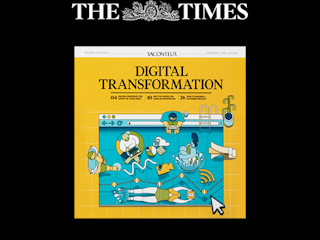2024-10-10
While personalization, AI and experience-driven travel aren't new concepts, evolving consumer expectations continue to reshape and redefine the industry's long-standing standards. In September, the Skift Global Forum brought together the top travel leaders for three days of idea sharing and insightful conversations in New York. These were the trends that we see defining travel right now.
Focus on personalized experiences to keep pace with evolving traveler expectations
Travelers today, especially millennial and Gen Z travelers, prioritize personalized, authentic and flexible travel experiences. They are increasingly looking for meaningful, immersive experiences.
This shift provides a significant opportunity for travel brands. While large brands are already innovating to capitalize on this trend, scaling the "magic" of experiences remains challenging for small operators.
Some key points travel brands should keep in mind:
-
Solo travel has surged in popularity, according to the Skift State of Travel 2024 report. Between 2018 and 2023, Google searches for “solo travel” doubled.
-
Besides hotels and flights, spontaneity is an important aspect of booking. Same-day bookings can account for as much as 40% of bookings.
-
We are seeing a shift toward boutique experiences that emphasize storytelling and local culture. This is a focus among companies like GetYourGuide and Klook.
-
Large brands such as Tripadvisor and Airbnb are focusing on curating and packaging experiences, signaling a long-term shift toward placing experiences at the center of the travel offering.
Travel brands need to focus on delivering personalized experiences that resonate emotionally with customers. Digitizing experiences and making them more accessible to book online is the first step, but successful digitization is also about telling the right stories. In other words, selling experiences digitally requires the right digital experience.
Timing is also important in experience creation. Brands will need to understand when they should send guests a reminder about different experiences, as this part of the booking typically lags. Flights and hotels are booked in advance while experiences are booked closer to the moment.
Our work with Mandarin Oriental provides a useful example of what it means for a brand to offer resonant experiences and make those easy for guests to book. Read our case study to learn more.
AI’s role in enhancing customer experiences
AI is increasingly playing a vital role in shaping customer experiences, from trip planning to customer service. However, the technology needs to be refined and deeply integrated into the customer journey to provide the seamless experiences that travelers expect.
Some examples that came up at the event:
-
Expedia and Tripadvisor are using AI to summarize reviews and enhance customer service response times.
-
Agoda shared a stat that only 5% of interactions actually required human intervention. There are many predictable tasks AI could take over, freeing up time for travel advisors and customer service agents to focus on humanizing the experience for customers.
-
“It isn’t about getting it right,” Airbnb CEO Brian Chesky said about AI. “It’s about getting it right for our customers.” In other words, brands need to be thoughtful about how they bring this technology to their customers.
While many brands still rightfully hesitate to bring customer-facing AI tools to market, there are many more back-of-house use cases that may have huge impact on operational efficiency. Additionally, AI has the potential to empower guest-facing staff in new and impactful ways.
As more and more brands explore and refine their use of AI, we believe it’s crucial for our clients to begin investing in research and development around the right AI use cases for them.
The reinvigorated cruise industry
The cruise industry is experiencing a revival driven by new and younger travelers. Brands are seeing this as a huge opportunity to innovate and expand their offerings, both on and off the ship.
-
Health and wellness are emerging themes among cruise operators. Longevity experience offerings and wellness cabins are growing in demand.
-
Off-ship activities and destination partnerships (DMCs) represent a significant business opportunity for the cruise industry.
-
Marriott’s yacht experience is a great extension for the brand. Seventy percent are Marriott Bonvoy customers, 10 years younger than typical cruisers and haven’t been on a cruise before.
As younger generations develop their interest in cruises, there’s more opportunity than ever for brands to develop market-leading digital experiences around their cruise offerings.
For brands expanding into the cruise space, it’s crucial to tell the right stories and authentically align those stories to existing brand strengths. This will help you develop the right digital experience that will deliver on travelers’ needs and wants.
Social media’s impact on marketing and travel bookings
Social media is increasingly rivaling traditional platforms like Google in driving travel bookings. OTAs and travel brands such as Klook are experimenting with direct bookings through platforms like TikTok.
Key points to keep in mind:
-
Social channels give travel brands the ability to target spontaneous bookings.
-
User-generated content and AI-driven reviews are changing how travelers make decisions, with social media platforms serving as a discovery and booking tool.
-
According to the Skift State of Travel 2024 Report, social media is the preferred online source for trip planning among travelers. Half of travelers are comfortable with booking travel directly through social platforms.
As social and commerce converge, travel brands will need to adapt quickly to engage travelers where they spend the most time. Consider how to develop the right social content and capabilities to enable social booking, but also consider how social media fits into the larger customer journey.
Developing customer journeys that align with these trends
At Valtech, we help travel brands stay on top of fast-moving consumer trends so they can meet their business objectives and leap ahead of the competition. To learn more, have a look at our Travel & Hospitality page.












